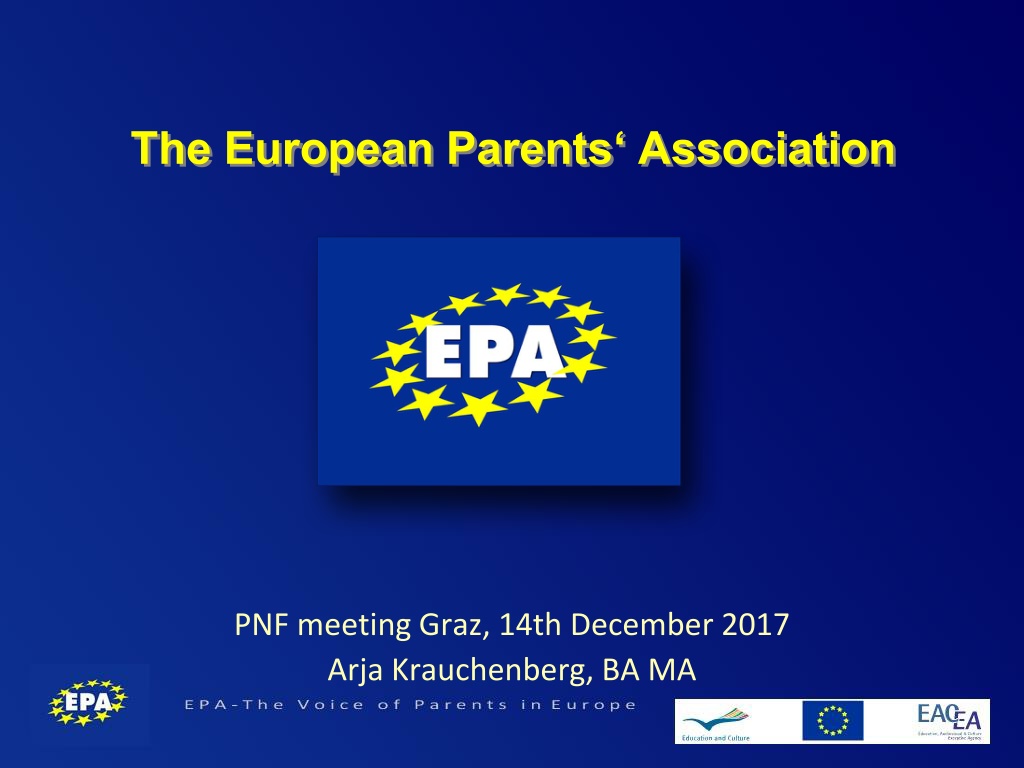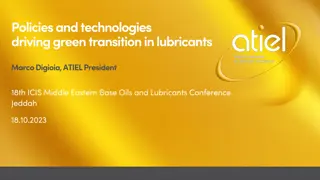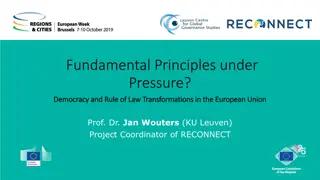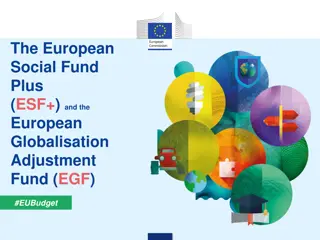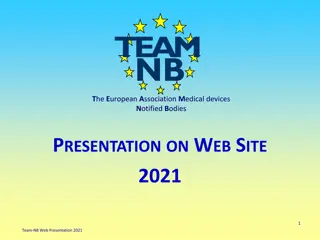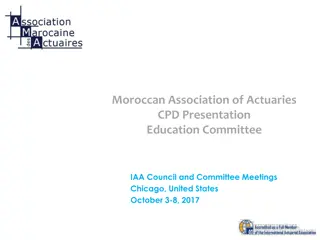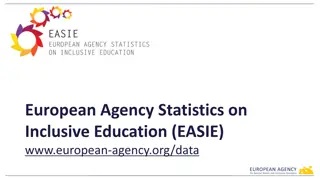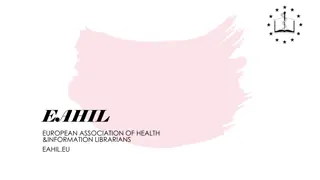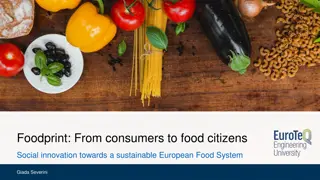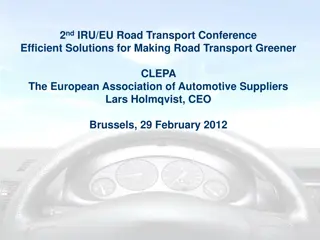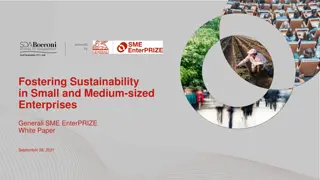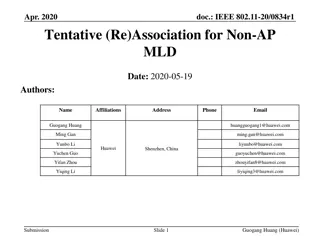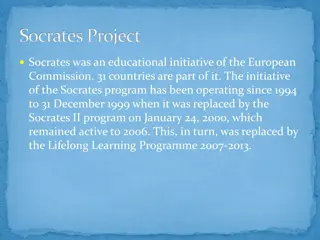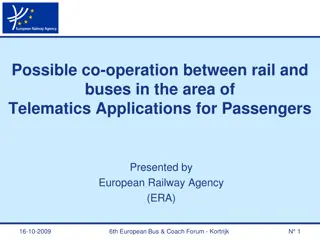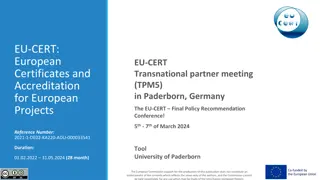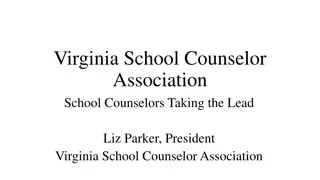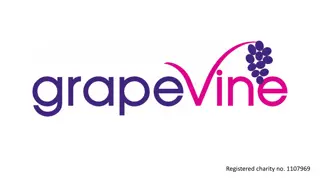European Parents Association - Empowering Parents in Education
The European Parents Association (EPA) was founded in Milan in 1985 and represents over 150 million European citizens through its member associations across Europe. EPA advocates for parents' rights in education and emphasizes the importance of parental involvement and support in their children's learning. The organization challenges misconceptions about parents' impact on education outcomes and emphasizes the unique, individual nature of the learning process. EPA aims to foster cooperation among national parental associations and promote the sharing of best practices.
Download Presentation

Please find below an Image/Link to download the presentation.
The content on the website is provided AS IS for your information and personal use only. It may not be sold, licensed, or shared on other websites without obtaining consent from the author. Download presentation by click this link. If you encounter any issues during the download, it is possible that the publisher has removed the file from their server.
E N D
Presentation Transcript
The European Parents Association PNF meeting Graz, 14th December 2017 Arja Krauchenberg, BA MA
from Norway to Malta from Ireland, to Cyprus, EPA represents more than 150 million European citizens.
Introduction EPA - THEEuropean Parents Association founded in Milan in 1985 more than 30 member associations from Ireland to Cyprus, from Malta to Norway representing 150 Millions of European citizens offers organised representation for parents at European level (EU institutions, EC, EP, ) links regional and national parental associations fostering co-operation and sharing best practices most concerned about parents in education
Core paradigms of EPA Parents are the primary educators of their children! at least they have the potential Parents rights are nested and positively linked to the rights of the child! Parents need to participate in every way of their child s education to be informed, asked, involved Parents need encouragement and support. demands on family, social and educational policy- making!
Primary Educators? PRIMARY? o FIRST o BEST most impacting Statistician: Parents spoil the results of every survey on (public) education. (International Conference Improving Education , Dec. 1st 2009) EPA: Don t blame activeparents for impacting on the learning of their children! Rather help all parents to do so!
Supporting? Statisticians: The learning outcome of school students clearly correlates to the socio-economic status of their parents (Generally accepted finding from PISA, TIMSS, PIRLS ) EPA: Don t mix-up correlation with causal relation! Don t simplify parental attitude onto this single evidence of social status! Michael Schratz: Think of learning as the most individual process in life even more private and special than sexual life, strongly influenced by empathic components (motivation)
Supporting? Sacker et al.: Parents attitude towards education strongly influences the academic success of their children. (2002) Charles Deforges: All normal parents can perform as superior educators of their children. It is a matter of parental competence. Required knowledge, skills, and attitudes can be trained. (Keynote at the EPA conference How Parents can Improve the Learning of their Children , June 19th, 2009) Ramon Flecha: Parents from little educated classes are open to education if approached respectfully (EUCIS-LLL conference, April 14th, 2010)
Objectives Creating opportunities for the exchange of experiences and ideas between member associations. Offering opportunities for networking and network solutions Supporting the involvement of parents in every European country Improving European cooperation Increasing capacity for lobbying on important educational issues
Working methods I Two General assemblies per yearin the country of a member combined with a conference also for local parents One in April, one in the autumn Key note speakers + workshops on topics related to the thematic area of the year 2018: Equitable Access to Education 2019 Parenting for a Healthy Life 2020 Parenting in the Digital Age
Working methods II Messages, videos, co-organised events for the European Day of Parents and School in line with the Topic of the Year Participation at as many member s events as possible to make European issues more visible to local parents Preparation of information material in the local language for such national events Using projects to offer support to national activities, especially in the field of empowering parents and parents representatives, and promote the use of intellectual outputs of projects to maximise impact
Projects Finished projects: FamilyEduNet ParentNets ELICIT+ ELITe EPNoSL Ongoing projects: SEQUENCES ParentHelp
Networks and Partners LLL-Platform Social platform ECML INGO KeyCoNet SIRIUS
Upcoming Events GA and conference in Milan 23-24 April 2018 Equitable Access to Education Parents free choice of education form
Thank you for your attention! www.euparents.eu Arja Krauchenberg, BA MA arja@euparents.eu
